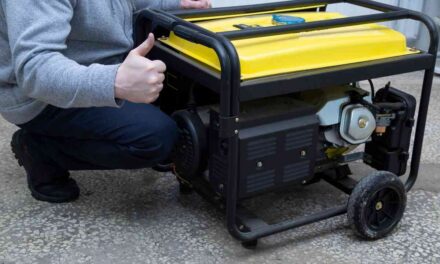
Buying a portable generator is a very challenging task. At this point, you rarely want to know the wattage that would work for powering the properties you’ve got available in your home, camp, resorts, and so forth. Quite a lot of factors could just be the cause of the challenges.
You also want to buy a kind of generator that would outlast your present needs and convenience. Indeed, all these would impugn you to check out the best possible medium of buying the best product. Nevertheless, check out tips that make a great portable generator great in the marketplace below.
How To Buy a Portable Generator – 7 Easy Steps To Follow
1. Number of Watts
A generator will be able to provide a number of watts (running and starting watts) to power your appliances. That means you need to add up the total number of watts for the appliances you wish to run simultaneously.
So if you want to use a fridge, an AC, and the TV together, you need to add their wattage requirements to make sure you’re able to run them.
2. Fuel Source
The typical generator is powered by gasoline, though you may find some powered by diesel. Then there are those which use LPG, which many consider as cleaner for the environment. You may even use a dual fuel generator that’s able to use both LPG and gasoline.
Other generators are power stations. They’re basically rechargeable batteries that can in turn power devices that use rechargeable batteries as well. These include laptops and smartphones, but you can also power drones and portable digital cameras.
3. Portability
Portable generators can be massive, but they’re considered portable because they have wheels and handles. Though you move these things around a site, they may be difficult to lift from a car trunk.
It all depends on the size and weight of the generator. Some weigh more than 100 pounds, though for campsites you can find lighter options at 40 to 50 pounds.
Some are lightweight enough at 20 pounds that they don’t have wheels. You can just carry them with the convenient carry handle. Remember, the rule is that with more watts you will deal with greater bulk and weight.
4. Run Time
Do you plan on sleeping overnight while the generator is running? Then look for a run time of at least 8 hours before the generator tank needs refueling.
5. Noise
Try to find generators that don’t make too much noise. Your neighbors will thank you, and so will your own eardrums. Look for generators that have a muffler and other ways to reduce noise.
6. CARB Compliance
This factor is for California residents. If a generator does comply with CARB regulations, then it can’t be sold in California.
7. Ease of Use
Using a generator should be so easy that even a child should be able to handle it (though adults should be in charge). There should also be safety features like overloading protection and automatic low oil shutdown.
What Should I Look for When Buying a Portable Generator?
- Opt for a generator that could last ten hours or more if you’re buying a battery-powered portable generator.
- Buy a product that would meet your convenience and expenses that would come up in the subsequent times after the purchase.
- Consider wheels or handle to choose the ones that would work best for your task. If you’d be using your generator at home, then buy one that uses pneumatic tires, while a lighter one would suit adventurists.
- Envisage the features, such as the number of outlets and recharging and refueling options that would work best for you.
- Find out the engine’s Overhead Value (OHV) to presume the performance and efficiency rate of a product after purchase.
Backup Power:
Backup power is known as any device that could render immediate assistance to your ultimate power supplier. This could be of any form. However, generators are renowned power backups each time there’s a power outage. In the absence of power in your zone, using a generator would typically keep your equipment running as it should. All that really matters is buying a product that would meet your requirements.
Removable Console:
It’s not advisable to directly plug power cords in the generator’s power outlets, yet a removable console makes this safer. Thus, there are many reasons why generator owners would want to consider buying a removable console for their generators. First, it could be for the emergency connection of power to one’s property at a point in time. Secondly, it could be for fuel management.
Portable Generator Safety Tips:
- Positioning of the generator matters. Placing the portable generator in a position where its exhaust that is ejecting toxic and harmful oxides won’t be facing the sensitive spots.
- You’re to place the generator in a dry and cool place when it’s working. This makes the environment safer for the children to stay around it.
- Ground the generator to enhance safety in the environment. Ground the generator by connecting the copper ground rod from the grounding bolt of the generator to the ground.
- Turn on the generator and leave it for a few minutes before you plug the power cord from the house. Disconnect the power cord from the generator each time you’re done using the generator. Don’t connect the power cord to the generator’s outlet when you’ve not turned the generator on first.
- Make sure you check the fuel gauge of the generator to ensure you never run out of fuel at any time.
Conclusion
Learning how to purchase a portable generator involves reading reviews. Read a lot of them, especially the ones from customers. They’re the ones that may provide the information you need to see if a particular generator really suits your needs at all.





